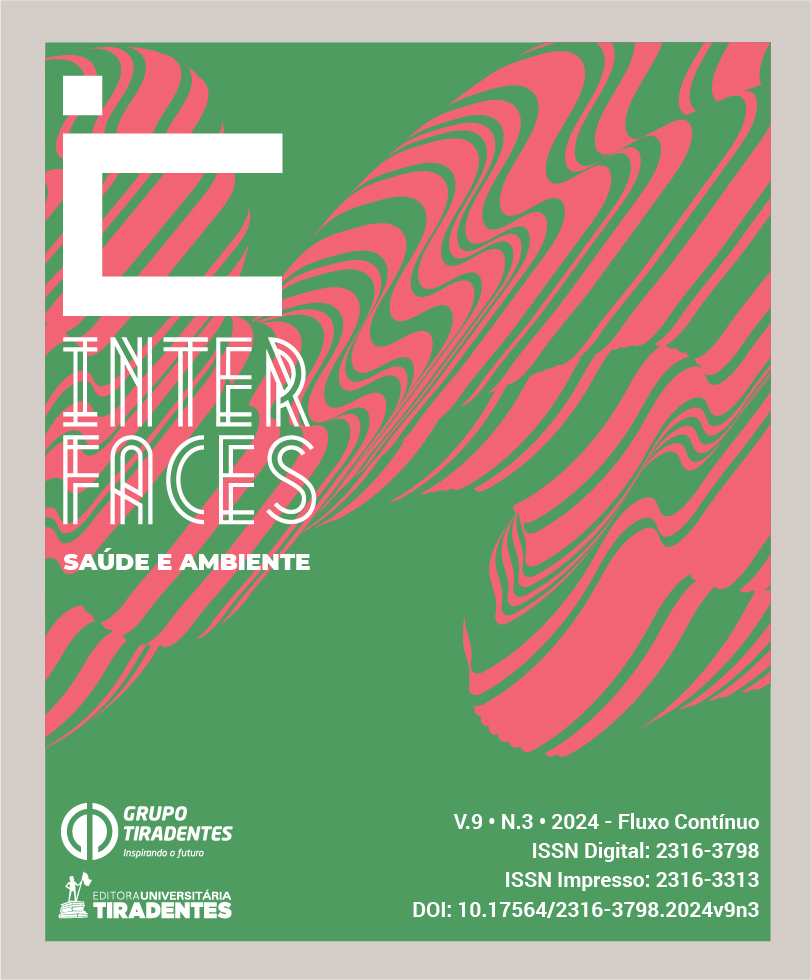EXPLORING MENTAL HEALTH IN QUILOMBOLA COMMUNITIES OF THE AMAZON: A QUANTITATIVE AND OBSERVATIONAL PERSPECTIVE POST-COVID-19
DOI:
https://doi.org/10.17564/2316-3798.2024v9n3p879-892Published
Downloads
Downloads
Issue
Section
License
Copyright (c) 2024 Interfaces Científicas - Saúde e Ambiente

This work is licensed under a Creative Commons Attribution-NonCommercial 4.0 International License.
Autores que publicam nesta revista concordam com os seguintes termos:
a. Autores mantêm os direitos autorais e concedem à revista o direito de primeira publicação, com o trabalho simultaneamente licenciado sob a Licença Creative Commons Attribution que permite o compartilhamento do trabalho com reconhecimento da autoria e publicação inicial nesta revista.
b. Autores têm permissão e são estimulados a distribuir seu trabalho on-line (ex.: em repositórios institucionais ou na sua página pessoal), já que isso pode gerar aumento o impacto e a citação do trabalho publicado (Veja O Efeito do Acesso Livre).
Abstract
The COVID-19 pandemic has impacted not only physical health but also mental health, with exacerbated challenges in marginalized communities. This study focuses on Quilombola communities in the Santarém plateau, Amazon, aiming to assess their post-COVID-19 mental health. The objective is to understand the prevalence of symptoms and identify associated factors, with the goal of filling gaps in understanding and informing sensitive interventions. Adopting a quantitative observational approach, the study utilizes demographic data and the HAD Scale. The sample is statistically analyzed, considering ethical criteria. The analysis includes Poisson regression and correlations to comprehend associations and complex patterns. The demographic analysis reveals diversity in Quilombola communities, with male predominance and variability in race, religion, and socioeconomics. Responses from the HAD Scale highlight a significant range of emotional experiences, emphasizing complexities in post-COVID-19 mental health. The discussion explores the interconnection between demographic and emotional factors, delving into emotional resilience and psychological complexities in the studied communities. Correlations reveal dynamics among different variables, providing crucial information for understanding self-perception in health. The study emphasizes the need for personalized and sensitive interventions. It proposes specific measures to address the demands of Quilombola communities, emphasizing psychosocial intervention programs, facilitated access to mental health services, and targeted public policies to mitigate adverse impacts. Incorporating these findings into public health can contribute to more resilient and inclusive societies facing post-COVID-19 emotional challenges.




















